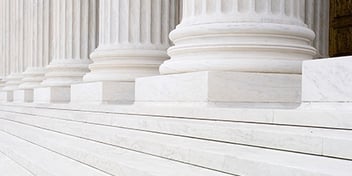Q&A: Underpaid subsidies due to PHA error
 QUESTION It’s recently come to my agency’s attention that some of our clients have been paying too much rent. This was due to a calculation glitch and applies to both public housing (PH) residents and participants in the housing choice voucher (HCV) program.
QUESTION It’s recently come to my agency’s attention that some of our clients have been paying too much rent. This was due to a calculation glitch and applies to both public housing (PH) residents and participants in the housing choice voucher (HCV) program.
We’ve fixed the error, but what about subsidy underpayments for past months? The monthly underpayments are small amounts but the error existed for several years. Does the PHA have to repay these amounts to our clients? If the agency retains documents for three years, can we limit repayments to the three-year period?
ANSWER While the HUD regulations do not address this issue, HUD has issued written guidance on the subject. The most recent guidance is in Notice PIH 2007-27, Disallowed Costs and Sanctions Resulting from On-Site Monitoring Reviews. Treatment of underpaid subsidies depends upon the program.
Here’s an excerpt from the section on underpaid subsidy due to PHA error in the HCV program:
PHAs will not be reimbursed for underpayment of subsidies. PHAs are required to reimburse families for overpayment of the total family share. Such reimbursements of the tenant portion of the rent can be made in current and future months through an increase in HAP to the landlord and a decrease in the family share until the family’s overpayment is fully compensated. A PHA may not use funds from its HAP account or HAP net restricted assets to directly reimburse families for overpayment of the total family share. If the family did not receive the full amount of utility reimbursement from the PHA, the PHA must reimburse the family.
Here’s the guidance for the PH program:
PHAs will not be reimbursed for underpayment of subsidies. PHAs are required to reimburse residents for overpayment of tenant rent in accordance with PHA policy.
Since the notice does not require a specific look-back period for reimbursement, it’s probably safe to limit repayment to the period for which the PHA has records. In the HCV program, records from interim and annual reexaminations must be retained for at least three years. In the PH program, record retention periods are determined by policy, and three years is a popular option.
We recommend reimbursing the family for the full period for which the PHA has records for that family, regardless of the agency’s record retention policy. For example, if the family was charged too much rent for seven years and the family’s file contains records for the last five years, reimbursement should be made for five years.
Is keeping up with reexams giving you a headache? NMA can help make the process painless. We'll handle your recertifications offsite, saving money for your agency while ensuring you’re still in compliance. It’s easy—the processing work simply happens in our offices instead of yours. Visit our website or email sales@nanmckay.com for more information.


